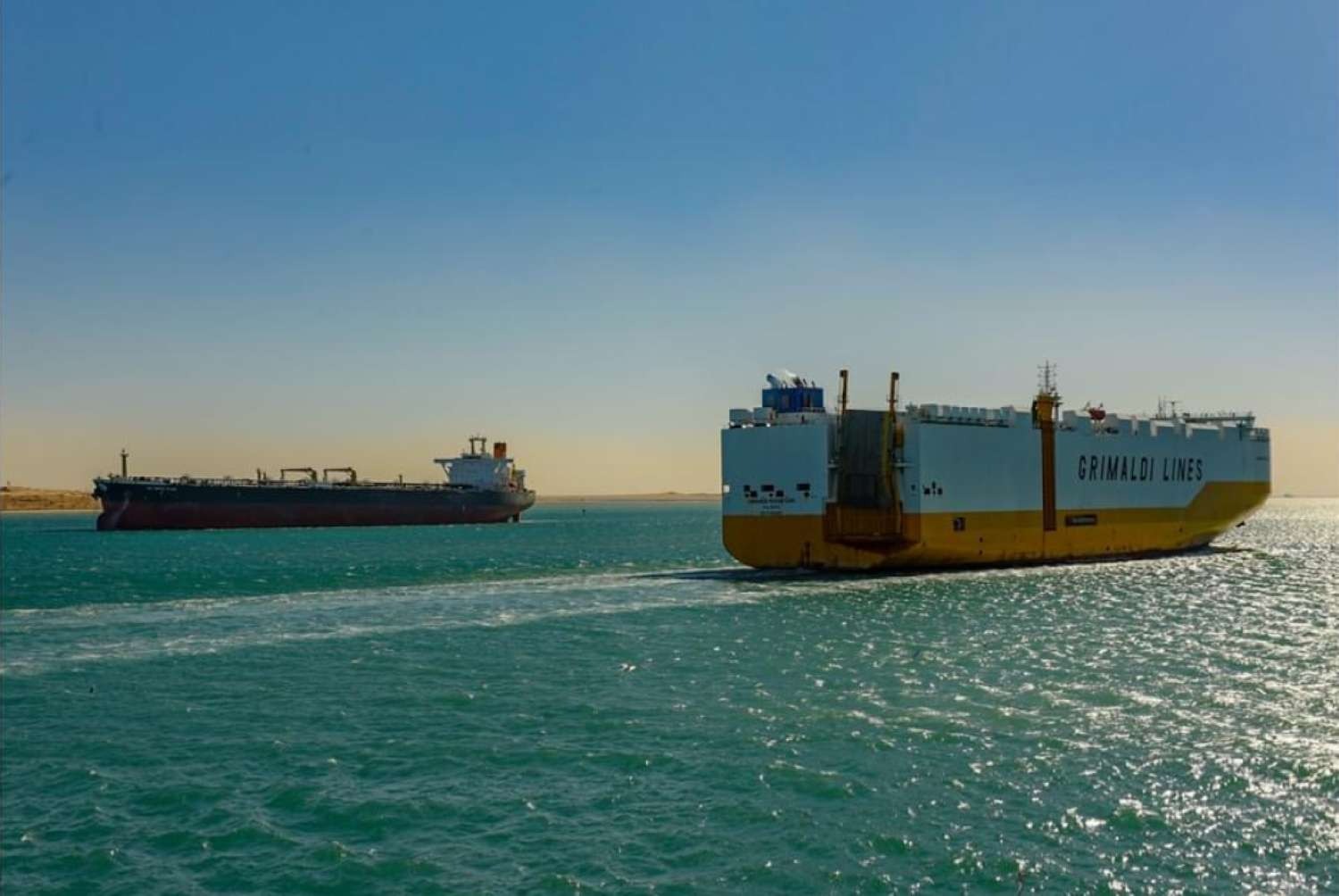


Asharq Al-Awsat newspaper
The Suez Canal Authority (SCA) has unveiled a marketing plan, described as a "flexible strategy," aimed at mitigating the impact of the Houthi crisis on global supply chains, according to SCA Chairman Lieutenant General Osama Rabie.
Since November 19, 2022, the Houthi group, designated as a terrorist organization by several countries, has been targeting commercial ships in the Red Sea, Gulf of Aden, and Indian Ocean. These attacks have prompted global shipping companies to avoid the Red Sea, rerouting their vessels through the Cape of Good Hope, despite the increased financial and time costs. This diversion has resulted in a decline in Suez Canal revenue.
Egyptian Prime Minister Dr. Mostafa Madbouly stated in a press conference on Thursday that the canal's revenues have "significantly decreased" since the Red Sea crisis. He emphasized that the government is considering "all pessimistic scenarios" to address the situation's consequences.
In February, Egyptian President Abdel Fattah El-Sisi revealed that the canal's revenue had dropped by 40-50% due to the events in the Red Sea.
To mitigate the crisis's impact, the SCA has implemented a "flexible marketing strategy," according to Rabie, who spoke during a video conference with Chang Ho Yang, the Executive Vice President of the Korean Ship Owners' Association. The SCA has also established direct communication channels with clients and discussed future navigation policies with international maritime organizations.
Rabie highlighted the introduction of new services, previously unavailable, to address potential emergencies, including maritime rescue, repair and maintenance, and maritime medical assistance. He assured that the canal continues to provide all navigation and maritime services to transiting vessels.
Last month, the SCA announced a 15-70% reduction in transit fees to stimulate traffic through the canal.
During the meeting with the Korean Ship Owners' Association, the SCA and the association discussed the impact of the current situation in the Red Sea on global trade and the future of navigation policies for Korean ships through the Suez Canal.
Rabie emphasized that the Red Sea's instability has negatively impacted global supply chains, leading to increased freight rates, fuel prices, and maritime insurance costs. He pointed out that the crisis has also contributed to higher carbon emissions, port congestion, and delayed cargo deliveries, further impacting the maritime transport market.
Yang expressed concerns about the safety of ships, crews, and cargo, stating that many Korean ship owners have opted to avoid the Red Sea, disrupting global supply chains and increasing shipping costs, ultimately leading to higher product prices.
He attributed the rise in the consumer price index to the disruptions in global trade and anticipated a decline once the region stabilizes. He urged all parties involved to work towards restoring stability to the Middle East.
In recent months, the SCA has held numerous meetings with global shipping organizations and companies to discuss the repercussions of the current tensions in the Red Sea. The SCA has also announced a package of maritime and navigation services, including maritime rescue, ship maintenance, and repair.
The World Bank projected in April that the ongoing crisis could result in a $3.5 billion loss in revenue for Egypt. The Suez Canal generated $9.4 billion in revenue in the 2022-2023 fiscal year, compared to $7 billion in the previous year.
In a related development, Egyptian President El-Sisi and Somali President Hassan Sheikh Mohamud, in a phone call on Thursday, affirmed their commitment to ensuring the security and stability of the Red Sea and the Gulf of Aden, emphasizing its positive impact on the Horn of Africa and its people.